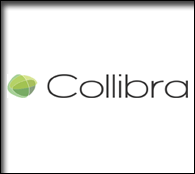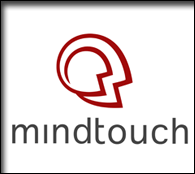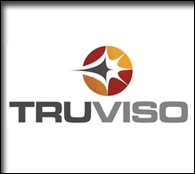Open: The Ultimate Buzzword
by Eric Norlin on Oct.19, 2010, under Uncategorized
Yesterday morning, while exercising, I found myself thinking that I wanted to write a blog post about “open vs. closed” and how the whole argument (open source, openstack, open business models) had gotten so confused that the word “open” meant NOTHING anymore.
And then Apple released it’s earnings.
Apparently, I’ve got some sort of secret mind-meld happening with Steve Jobs that even I wasn’t aware of. Witness (quoting, in part):
Google loves to characterize Android as “open,” and iOS and iPhone as “closed”. We find this a bit disingenuous, and clouding the real difference between our two approaches. The first thing most of us think about when we hear the word “open” is Windows, which is available on a variety of devices. Unlike Windows, however, where most PCs have the same user interface and run the same apps, Android is very fragmented. Many Android OEMs, including the two largest, HTC and Motorola, install proprietary user interfaces to differentiate themselves from the commodity Android experience. The user’s left to figure it all out. Compare this with iPhone, where every handset works the same….
You know, even if Google were right, and the real issue is “closed” versus “open,” it is worthwhile to remember that open systems don’t always win. Take Microsoft’s “Plays For Sure” music strategy, which used the PC model—which Android uses as well—of separating the software components from the hardware components. Even Microsoft finally abandoned this “open” strategy in favor of copying Apple’s integrated approach with their Zune player, unfortunately leaving their OEMs empty-handed in the process. Google flirted with this integrated approach with their Nexus One phone.
In reality, we think the open versus closed argument is just a smokescreen to try and hide the real issue, which is, “What’s best for the customer – fragmented versus integrated?” We think Android is very, very fragmented, and becoming more fragmented by the day. And as you know, Apple strives for the integrated model so that the user isn’t forced to be the systems integrator. We see tremendous value at having Apple, rather than our users, be the systems integrator. We think this a huge strength of our approach compared to Google’s: when selling the users who want their devices to just work, we believe that integrated will trump fragmented every time.
Here’s the problem: I disagree with the underlying point Jobs is trying to make. So, let me take another swing at this.
1. “Open” is good. I love “open.” I’m all for “open.” The problem is that the word “open” has taken on so many emotional attachments that it’s now almost meaningless in actual conversation.
2. We can trace the importance of “open” back to open source and Eric Raymond (alright, you can go to Stallman if you want, but then we’re talking “free” not open). It used to be that being “open source” was a big deal. Now no one cares. Still, that was the beginning of “open vs. closed” — where “open” literally meant access to (and ability to edit) source code.
3. Somewhere along the line, “open source” became “open business model” — not in the freemium sense, but in the “we play nice with other platforms” sense. This whole line of reasoning was always very confused because for a while Microsoft was supposed to be the evil empire, and Apple was the good guys (unix shell, FTW!). But then, Apple became “closed” (ahem - “integrated”), Microsoft became cool with open source (kinda), and everyone got scared of Google (for 3 seconds, before transferring their fear to Facebook).
4. Eventually, “open” came to mean “no vendor lock-in” — usually in reference to up and coming protocols/platforms. It’s important that the cloud be “open” — cuz, you know, closed clouds do no one any good. WHAT?
5. All of this emotionality around the word “open” soon led us to attach it to anything we wanted to feel good about: Open….stack. Open….protocol. Open…..API. It never made any sense, as how *exactly* do you have a “closed” API?
6. Now, “open” means clouds (not Hybrid or Private ones, though….hell no), APIs, protocols, stacks, source, business models, platforms, app marketplaces, hiring processes, geo-location data, and just about anything else that we need to put a halo on. It’s like a bunch of hippies got together and decided to sing kumbaya, where the only word in the song is “open.”
Bottom-line: while I agree with the underlying ideas of “open” - the word itself is just an over-used buzzword. Hell, it may be the ultimate buzzword. And I’m saying that as a guy who has it as a main topic on the Defrag agenda!
The next time someone uses the word “open” to describe something, stop them. Make them explain what they mean by “open.” Force them to use synonyms and other descriptors to make their point. If they can, GREAT - you’re having a real conversation. If they can’t, you’re in buzzword hell.
Hey, but at least, it’s “open.” ![]()
This and other rants will be available at Defrag - join us….or you’ll be “closed” not “open.” And that would be very baaaaad.









